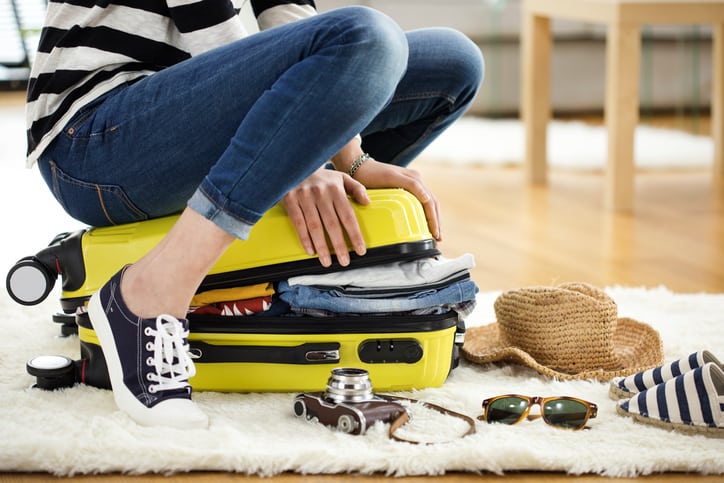
When you’re preparing for a big move, it’s easy to get caught up in the chaos and forget about some of the little things. Most people don’t worry about what they’re putting in boxes if they leave packing until the last minute. However, whether you’re packing belongings yourself or letting a professional do the work, certain items are prohibited or just not worth lugging. To avoid any further stress and prevent injury, here are some items you shouldn’t pack.
You obviously wouldn’t pack up all of the leftovers in your fridge and expect them to make the trip to your new home. Perishable items such as meats and vegetables should be packed in refrigerated containers and moved separately or, better yet, enjoyed before your big move! Be sure to check your nonperishable foods as well. While they can be packed safely, any opened bags or cans could result in an unexpected mess. Also, remember that a new home is a new start. Why not take the opportunity to clean your cupboard? It’s also a great opportunity to donate nonperishable foods to a worthy cause.
Nearly all movers prohibit the transportation of rubbing alcohol and similar substances, but some also refuse to move drinking alcohol as well. Check with your moving team to find out whether or not you’ll need to transport your wine or spirits yourself.
Hazardous items such as chemicals and flammable materials can pose a risk to both your belongings and the safety of your movers. Cleaning solutions, fertilizer and propane tanks fall under this category, as well as:
You can move these belongings yourself, if necessary, but make sure they are properly packaged, secured, and kept away from direct heat sources. That being said, this also may be a good opportunity to get rid of that can of paint thinner you bought years ago and only used once.
When packing for a big move, it’s easy to get swept up in all the excitement. You might feel as if everything has to go in its own box or folder. However, there are some important things that you should definitely set aside and keep handy. Information about your mover, including the contract you sign and any contact information, should be readily available. Keep important financial or medical documents close by and under lock and key, if possible.
You’ll also need to set aside whatever belongings you might need on a daily basis during the move. These might include:
Good packing is an essential part of a good move. You could do the job yourself, or entrust the task to packing professionals with years of experience. The certified packers at Dearman Moving all have 200 hours of supervised on-the-job training, 30 hours of classroom training, and a mastery of 80 skills associated with the packing process. Contact us today to view all available packing options or for more information.